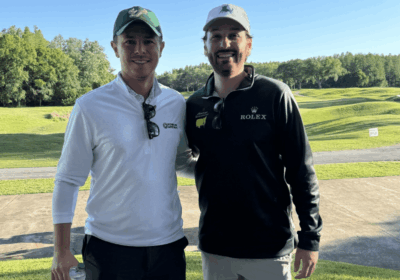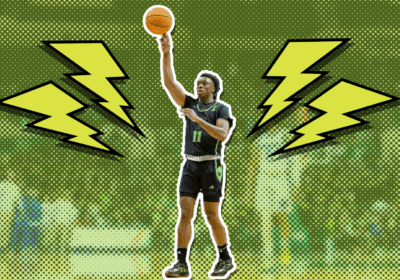OPINION: USF coaches need to be more than game-day leaders

In his first year at USF, baseball head coach Mitch Hannahs brought an old-school approach to the program.
He stayed off social media and had minimal interactions with fans, except during press conferences and games.
And toward the end of the season, Hannahs began to decline interviews with The Oracle — both for himself and players — with no explanation.
Another concerning note we experienced was that it looked like he selectively restricted interviews based on the outcome of games, which raised concerns about fairness, transparency and accessibility within USF athletics.
Making it difficult to hear what you have to say, whether it’s about games or athletes, deepens the disconnect between coaches and the student body.
Related: OPINION: USF needs to be more transparent with its community
The first instance Hannahs explicitly denied an interview request without reason came after more than a month of back-and-forth email communication.
A request was sent to a media contact to help arrange an interview with Hannahs for a feature story on March 7. A response was received after three days, letting us know they were checking for a time that worked to talk.
We followed up on March 24, March 31 and April 7.
Finally, on April 10 — more than a month after our original request — we were told that “after speaking with Coach Hannahs, he has declined the invite for an interview.”
No reason was provided.
While we understand things happen, it should not take five emails just to be told no — and it should not come without an explanation.
Following the denial from Hannahs, another interview request was sent in on April 11 — this time to speak with standout pitcher Corey Braun.
Again, we received no response from the point of contact. After a follow-up email on April 23, we finally received a blunt reply.
“Coach Hannahs has declined to do interviews with [The Oracle] for coaches and players,” the response read.
When we asked for clarification on whether this was specifically for The Oracle and the reason for it, we were again met with silence.

And, while we were being iced out, Hannahs and players were actively speaking elsewhere.
Braun appeared on the Jay Recher Podcast on April 2, as he discussed his season and growth as a pitcher.
Seniors Bradke Lohry and Sebastian Greico were featured on the It’s Brewin’ at McEwen podcast on April 10.
Then, on May 14, Hannahs himself joined the same podcast to preview the previous week and the team’s push towards the American Athletic Conference tournament.
And just two days earlier, we had sent a formal request for an interview with Hannahs and two players. Another request was sent on May 27 — neither email received a response.
So, it can be seen that the issue was not availability. It was selective media engagement.
And that message undermines not just our ability to report, but the principle of student voices on a public college campus.
USF Athletics spokesperson Merrisa Lynn was made aware of the communication issue and issued a statement acknowledging the situation.
“We value our relationships with members of the media, including student journalists, who cover our programs,” Lynn wrote. “We have addressed the matter internally. We will continue to work to provide appropriate access in the future and ensure that a similar issue does not occur again.”
Related: USF’s Mindy McCord builds culture of “family and love” into lacrosse
On the other hand, women’s lacrosse head coach Mindy McCord has shown what it means to be connected and transparent with students in her first year.
She’s actively involved with the campus community through events, social media and even took time to sit down with The Oracle to discuss her transparency and engagement.
The women’s lacrosse team ranked fourth nationally in average fan attendance and third in total attendance — both NCAA records for a first-year program.
“[The team] wanted to meet and talk to people,” McCord said. “We were able to build relationships and get to know fans by name.”
Games featured fan experiences, such as dog-friendly games, youth days, salute to service games and post-game fireworks.
McCord has also built a strong presence on social media, often breaking down games or new commits from a coach’s perspective to give fans deeper insight into the team.
She said this helps fans feel more connected to the game.
“If you can feel engaged with the outcome of a game and understand it, being able to share it with the fans gets them even more excited and involved, too,” McCord said.
That engagement, she said, helps the athletes by creating a stronger home-field advantage and a deeper sense of community support.
Being present at on-campus events and engaging with students both in person and online creates a deeper sense of community and loyalty that wins alone can’t create.
Students deserve to hear from their coaches, and student journalists deserve to ask questions without being dismissed.







